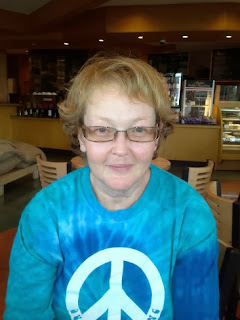For the past fifty years, I have been living under the shadow of a lie. I think it has to do with the shape of my eyes. From the time that I was in primary school, my friends and classmates thought that I was part Chinese. In high school at Jamaica College, one of the boys in Cowper, the upper house to Murray, called me a “Tappa shop Chinee bwai.” The name calling didn’t bother me. Growing up in Mona Heights with Jamaicans of African, English, Chinese, and East Indian ancestry, I knew that Jamaicans of Chinese descent (especially our fathers) were just as crazy as everyone else.
Yet even after I graduated from Jamaica College and I
moved to Miami, the mistaken identity followed me. I just smiled whenever someone
called me, “Mr. Chin,” and went on with whatever I was doing. However, when a
Chinese-Jamaican cashier at our local supermarket asked me how I was going to
celebrate the New Year—she meant the Chinese New Year—I decided to research to
create a family tree.
This was not as easy as it seems. My father was married
four times and I have brothers and sisters living in Jamaica, Canada, England,
and Switzerland. My mother’s family is even more complicated with cousins and
aunts living in Jamaica, Cuba, Canada, and Panama. Piecing together a family
tree under these circumstances was going to be a challenge.
With the help of my brother, Ricky, who lives in Canada
and who had already begun putting together the Philp family tree, I began
working on the Lumleys, my mother’s side of the family.
Using Ancestry.com, I created a family
tree and traced my roots to the early nineteenth century when the Philp and
Lumley males came to Jamaica from Great Britain and began marrying Jamaican
women. Both Philp and Lumley males were also very religious and left behind
family Bibles and other artifacts. My great-grandfather, Frederick Andrew
Lumley, Sr. was one of the earliest founders of the Seventh Day Adventists in
Jamaica and one of my grandaunts, Marie Evelyn Jones née Lumley, “is thought to be the first Negro to enroll at Loma
Linda University.”
But then my research
came to a halt. Using immigration records, the males on both sides of my family could be traced back to
Scotland and England, but the females on either side ended up in slavery as
property. I always knew I had African ancestry, but after being called “Mr. Chin” for so many
years, I wanted to know if there was even a trace of Chinese blood flowing
through my veins. After collecting the email and snail mail addresses of my
relatives, I asked the question, “Do we have any Chinese ancestry?”
All the answers
came back negative. This I suspected could have been due to the prejudice that
many Chinese Jamaicans have faced. I continued asking what could have been
perceived by my relatives as uncomfortable questions, but I wanted to know the
truth. Despite making connections with living first, second, third, fourth,
fifth and sixth cousins, many of whom I had never known before, I kept hitting
genealogical dead ends.
I was just about
to give up when Ancestry.com introduced AncestryDNA, which promised an accurate reading of
my DNA. I purchased the kit and within a few days, it arrived on my door step.
After following the instructions, I returned the kit and waited for the
results.
A few weeks
later, I received an email from AncestryDNA. My ancestry was 51% West African
and 49% European (36% Great Britain, 5% Scandinavian, 3% Ireland 3%, 2%
Italy/Greece, < 2% Iberian Peninsula, and < 1% Finnish/Northern Russia.
Scandinavian? I
guess that’s where I got my "Chinee eyes" or the epicanthal fold found in Europeans such as Poles and Scandinavians.
The DNA test had
lain to rest all the doubts about my so-called Chinese ancestry. But now a new
set of questions opened up before me. Which part of Africa did my ancestors come
from?
***
As a part of the Bob Marley: Messenger exhibition at Miami History, Cedella Marley, Gerard Hausman and Geoffrey Philp will be reading Jamaican Tales at MiamiHistory on November 9, 2013
HistoryMiami, 101 West Flagler Street, Miami, FL







